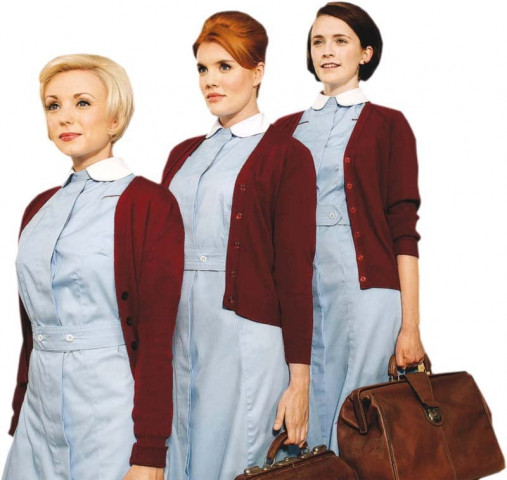TV review: Call the Midwife - Baby mama drama
The BBC’s Call the Midwife celebrates a ‘feminine preoccupation’ in all its messy glory

The BBC’s Call the Midwife celebrates a ‘feminine preoccupation’ in all its messy glory.
Loosely based on a trilogy of memoirs by 1950s midwife Jennifer Worth, Call the Midwife, which begins its fifth season in December, follows 22-year-old Jenny Lee (Jessica Raine) as she arrives in Poplar in London’s East End for her first nursing job. Lee lives in Nonnatus House with a group of nuns who are also nurses, as well as with three other young midwives, and the show depicts these characters’ professional and personal lives as they confront issues which are as relevant today as they were in the 1950s, especially in a developing country like Pakistan — poverty, lack of proper health care for pregnant women, big families living on low incomes, poor housing and living conditions. But despite the show’s unflinching look at grim social problems, Call the Midwife retains a tone of positivity and warmth that is quite unlike most of today’s increasingly cynical television.
Despite the thread of sentimentality that runs through the narrative, Call the Midwife retains an exceptional amount of realism, particularly in its depiction of labour and delivery. Unlike in most films and TV shows where women give birth without so much as breaking a sweat or having a single hair fall out of place, Call the Midwife is not afraid of getting into the nitty gritty of the sheer effort and hard work that is involved in childbirth on the part of the midwives and the mothers. The show neither downplays this important part of womanhood nor romanticises it, portraying childbirth frankly, in all its messy glory.
The group of nuns and nurses and their growing bond with each other is another delightful aspect of the show. Jenny is joined by the fashionable, boy-crazy Trixie, the quiet and thoughtful Cynthia and the awkward but large-hearted Chummy (she is among the best drawn characters of the show). The older nuns are also fully fleshed out, especially the ageing sister Monica Joan (Judy Parfitt), whose penchant for quoting obscure literature and fondness for cake as well as her funny one-liners make her a fan favourite. The show goes beyond having older characters exist just for comic relief or as a wise sounding board for the younger characters — Sister Monica Joan’s on-going struggle with dementia is the best and most nuanced depiction of the trials of old age on television, and Parfitt’s performance is undoubtedly the best on the show. Each episode is bookended with voiceovers by an older Jenny, voiced by veteran actress Vanessa Redgrave, and her reflections give the show an added sweetness.
Throughout its four seasons, Call the Midwife confronts important issues, such as the elderly being driven out of their homes, working mothers facing judgment, black women dealing with the ingrained racism of the era and people dealing with the effects of World War II, which has only been over for a decade. In the end, however, the show is about a sense of community, of good people brought together for a purpose, of everyone doing the best they can. In its unapologetic embrace of a positive view of the world, as well as its unabashed feminist take on some of the most important women’s issues, the show is truly revolutionary.

Published in The Express Tribune, Sunday Magazine, September 6th, 2015.



















COMMENTS
Comments are moderated and generally will be posted if they are on-topic and not abusive.
For more information, please see our Comments FAQ